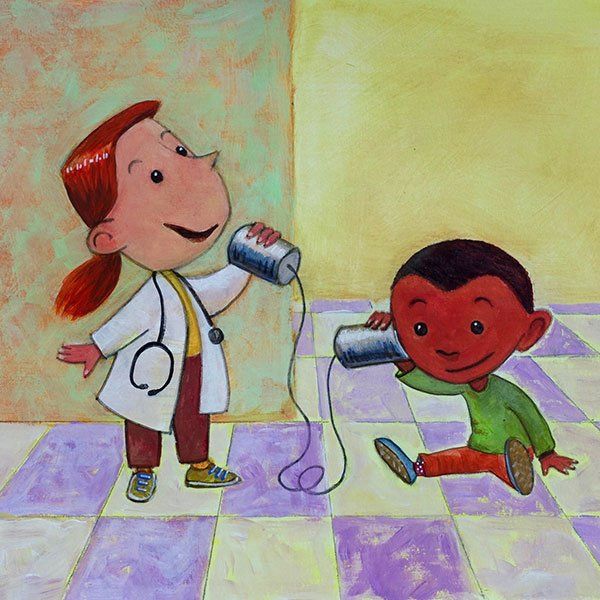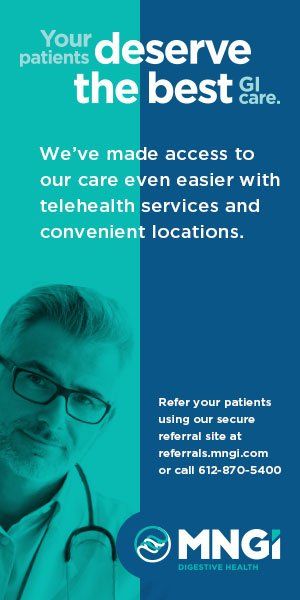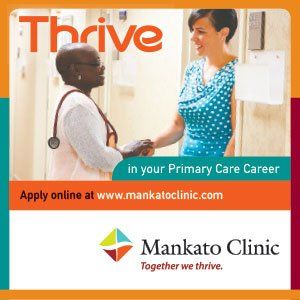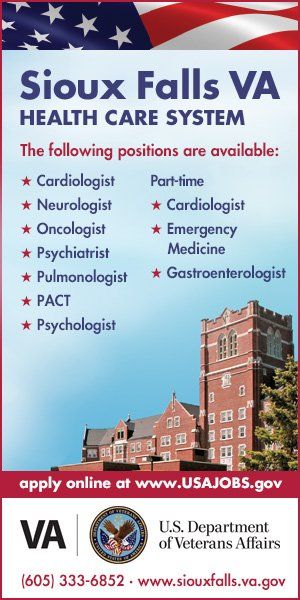o support physicians and other clinical and non-clinical health-care professionals who are serving a patient population whose members may not speak English or be familiar with or trustful of traditional U.S. medical practices, Culture Care Connection (http://culturecareconnection.org) has been reimagined and redesigned to keep pace with changing needs.
cover story one
Culture Care Connection
Keeping pace with change
BY SUSAN SEVERSON
First launched by Stratis Health and UCare in 2008, this online learning and resource center began with the mission, “to provide actionable resources and information on cultural competency and connection to tools, resources, and training in Minnesota.” As part of the refresh, the mission has been amended, notably with “cultural competency” being replaced. The reality is that none of us can be fully “culturally competent” because individual and community preferences and demographics continuously evolve.
The long-standing collaboration between Stratis Health and UCare has thrived as we continue advancing a shared commitment to addressing social determinants (or drivers) of health (SDoH), inequitable care and biases, and improving patient and community health. The vision for the Culture Care Connection redesign was inspired by the disparate impact of COVID-19, uncertainties about the delta variant, the racial justice crisis, and declining health and life expectancy for members of racial and ethnic minority groups. Health care and social needs gaps that were already at crisis levels worsened in light of local and world events.
Long standing problems
Health care disparities have been documented for decades and reflect long-standing structural and systemic inequities rooted in racism and discrimination. But the impact of systemic racism and implicit bias have largely gone unnoticed in determining health care access, treatment, and outcomes in diverse communities. For example, heart disease, cancer, chronic lung disease, stroke, Alzheimer’s disease, diabetes, and chronic kidney disease are the leading causes of death and disability, and the leading drivers of the nation’s $3.8 trillion in annual health care costs. Yet, many of these conditions tend to be more common, diagnosed later, and result in worse outcomes when studied in the context of SDoH.
Even though medical care accounts for a smaller portion of influence over health (20%) than the greater influence of where people live, work and play (80%), health-care professionals can make lives better by taking community-based social drivers into account. Culture Care Connection encourages the health-care community to consider factors such as access to care, poor quality of care, features (e.g., inadequate access to healthy foods, poverty, limited personal support systems, and violence), environmental conditions (e.g., poor air and water quality), language barriers, and health behaviors in developing patient treatment plans.
Improving health equity is imperative.
The need for culturally appropriate and culturally sensitive care is more important than ever. Minnesota is commonly thought of as “racially homogenous” however, the diversity of the state’s population continues to grow. In 2010, about 83% of Minnesotans were non-Hispanic whites. The 2020 count will likely be 79% or below when the final numbers are in.
Projections indicate that, statewide, Minnesota’s non-Hispanic white population will begin declining even further within the next decade. Meanwhile, the Black population has risen nearly 2 percentage points, and the Asian and Hispanic populations just under 1 percentage point each. Racial and ethnic groups are expected to grow by more than one million between 2018 and 2053, exceeding one-third of the total population, according to the Minnesota State Demographic Center.
Although Minnesota consistently ranks as one of the healthiest states in the nation, there continues to be a significant variation in health-care outcomes across and within certain communities—something Culture Care Connection aims to address. The MN Community Measurement 2021 Minnesota Health Disparities Report (found at https://mncm.org/reports/#community-reports), indicates there is much work to be done, especially in assuring that Native American, Black, Hispanic and Asian American patients, as well as patients with a preferred language other than English, receive optimal care.
The goal now is for Culture Care Connection to become the go-to resource for Minnesota health-care professionals and to contribute to ensuring patients feel understood and respected by their health-care teams. By helping Minnesota’s health-care professionals learn about cultural preferences and needs, Culture Care Connection supports them in delivering effective, empathetic care which leads to patients being more receptive to recommended care and more likely to follow health and lifestyle recommendations.
The updated Culture Care Connection is reaching more health-care professionals than ever, with nearly 6,500 new visitors since the new version was released in May 2021. Importantly, key audiences—physicians, physician assistants, nurse practitioners, nurses, administrators, and managers—are responding. Direct and referral traffic is higher than it’s ever been, which means more people are coming to the site from direct links, instead of through a random web search;. interestingly, they are spending time on the “Addressing Bias & Driving Equity” and “Cultural Responsiveness” resources.
The Implicit Bias Quiz
In keeping with the action orientation of Culture Care Connection, health-care professionals can assess their own cultural awareness by taking the Implicit Bias Quiz;, familiarizing themselves with the diversity in Minnesota resources;, and assessing and addressing organizational biases, as compared to culturally and linguistically appropriate services (CLAS) standards;, and engaging in continuous learning.
The Implicit Bias Quiz is of unique importance in heightening self-awareness. Numerous studies show that health-care professionals can be prone to implicit biases, which often affect clinician/patient interactions. Clinicians may provide the same information to all patients about treatment choices, risks, and outcomes, but nonverbal cues and missteps can counter efforts to display empathy or build rapport. Patient behavior and decisions are affected when they perceive clinician bias. For example, bias can change a patient’s adoption of recommended care, resulting in higher treatment dropout, lower participation in screenings, delays in filling prescriptions, poorer perception of care quality, avoidance of health care, and, ultimately, worse health outcomes.
A library of new tools
Culture Care Connection also offers a special focus on cultural responsiveness, which is the ability to recognize and understand the role culture plays in health care and adapt care strategies to meet patient needs. A growing library of carefully curated resources enables health-care workers to learn more about the background, religious and cultural beliefs,communication preferences, and prevalent health issues of people who commonly face health disparities.
Some of the most popular new Culture Care Connection features include:
Recommended social media thought leaders.
- Relevant podcasts.
- Health equity TED Talks.
- Anti-racist books and publications.
- Deep-dive data sets (national and Minnesota).
- Information about social determinants (or social drivers) of health.
- Updated health equity style guide, along with principles and preferred terms for non-stigmatizing, bias-free language.
- Updated Diversity in Minnesota Information Sheets.
Culturally sensitive care is more important than ever.
The 19 (and growing) Diversity in Minnesota Information Sheets, a time-honored and popular site feature, has been developed with the help of the communities represented. The Information Sheets are routinely revisited in partnership with community advisors to ensure they accurately reflect the most timely information available. Each includes information about health disparities within a specific group, social structure, diet, medical care, mental health, and end-of-life practices, as well as links to trusted resources for deeper learning.
A look to the future
Planning is already underway for the next wave of Culture Care Connection enhancements. Understanding that communication channels are rapidly expanding and preferences for accessing information are as individual as health-care needs and preferences, original and curated blogs, vlogs, podcasts, videos, and social media options are being explored. Topics under development include ageism, gender and identity, rural health, health literacy, and disabilities.
Here are some fast facts about these often-overlooked topics requiring the awareness and intervention of health-care professionals:
Ageism: The population of Minnesota’s oldest adults—those age 85 and above—is expected to more than double in the next 35 years;, from the current 120,000 to over 270,000. The World Health Organization has called ageism “a prevalent and insidious mental and physical health threat that calls for immediate interventions.”
Gender and identity: Data from a nationally representative CAP survey conducted in 2017 show that LGBTQ people experience discrimination in health-care settings, that discrimination discourages them from seeking care, and that LGBTQ people may have trouble finding alternative services if they are turned away.
Rural Health: 46 million Americans, or 15% of the population, live in rural areas and commonly have trouble obtaining health-care services. Remote location, coupled with economic, cultural, educational, and social factors, combine to result in higher rates of chronic disease, disability and death from injuries.
Health literacy: Numerous studies show the correlation between low health literacy and poor health status and outcomes; nearly 36% of adults in the U.S. have low health literacy, with disproportionate rates found among lower-income Americans.
Disabilities: The percentage of Minnesotans reporting one or more disabilities increases with age. In 2018, the share of Minnesotans with a disability was 5% for those age 5-17, 5.8% for those age 18-34;, 10.4% for those age 35-64;, and 45.1% for those age 65+and older.
Physicians and other health care professionals face monumental challenges in addressing each patient’s interwoven health and social needs. But there is also a tremendous opportunity to contribute to improving care quality and driving health equity forward across Minnesota and beyond with Culture Care Connection serving as a foundational tool. Eliminating health-care disparities and improving health equity is imperative for the prosperity and quality of life for all Minnesotans.
Lessons learned from Culture Care Connection users are clear. Identifying and addressing health disparities requires the support of leadership and input from patients and community members, but all staff—especially front-line staff and middle managers—need to be involved. One way to develop an anti-racist workplace is to use the site’s resources to guide regular 30-minute lunch-and-learn team meetings.
The usefulness of Culture Care Connection is dependent upon feedback from visitors. Health-care professionals from across the continuum of care are encouraged to comment on what’s working, what could use improvement, and what they would like to learn more about, by using the Contact Us form, available on http://culturecareconnection.org/contact-us/.
Susan Severson,
is Vice President for Health Information Technology at Stratis Health.
MORE STORIES IN THIS ISSUE














